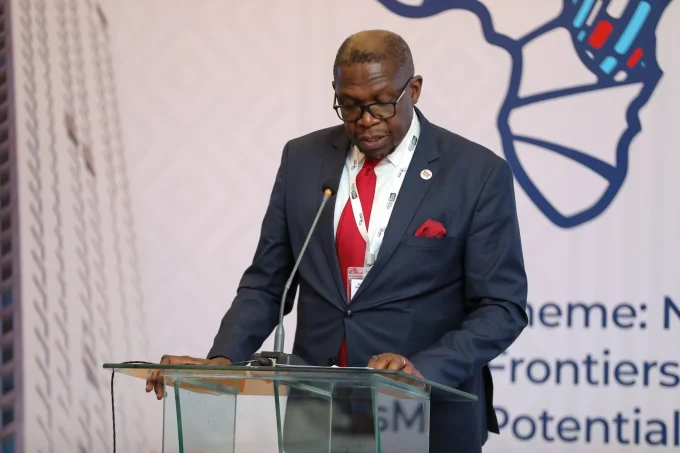Even before the new Kenya Revenue Authority boss John Njiraini settles comfortably in his position, concerns are growing among parastatal staff of a possible labour blood birth at Times Tower.
In late March, KRA was compelled to reassure its 4,000 employees as rumours flew around of possible layoffs. The restlessness was much informed by last year’s engagement of PricewaterHouse Coopers (PwC) to look at its structures.
KRA has rarely advertised positions in the past and is thought to be home to many deadwoods brought in through political and other types of patronage. Before the advertisement for the positions of Commissioner-General, Customs Commissioner and Large Taxpayers Office Commissioner, which were filled by Mr Njiraini, Beatrice Memo and Pancrasius Nyagah respectively in late 2011, KRA recruitment was largely an in-house affair.
Appointment of Mr Njiraini, a hard taskmaster who is believed to take a dim view of the structures and usefulness of some staff, only tended to increase the fears.
“I have seen it appropriate to address you on the ongoing organisational structure review and job evaluation exercise arising from what I gather to be fears among some of you that the exercise may be driven by hidden motives,” said Mr Njiraini in a staff memo dated March 26, barely three weeks into the job.
The internal communication has heightened tension among KRA staff who expect the axe to fall despite assurances. Most of them could not help but notice that a number of senior commissioners within the parastatal will not have active interaction with the new head honcho under the new structure, a factor important enough to convince some that they are moving away from the centre of power.
Seven of the senior commissioners who used to report to former boss Michael Waweru will not interact with Mr Njiraini in the new chain of command. Instead, only ten out of the previous 17 commissioners will do so.
According to the KRA memo, this is supposed to “reduce the Commissioner General’s span of control in order to help the office concentrate more effectively” on core duty of revenue collection. This might be interpreted to mean their role has been more useful in increasing the bureaucracy than raising the badly needed revenue.
More unnerving to the ‘unchosen’ few is that the head of the parastatal is likely to ‘rejig’ the organization, which is not always likely to be positive on career development. The impending move will also condense KRA’s chain of command from 16 to 10.
Before the PwC recommendations, officers would doggedly climb from grade 1 if they were to become head tax collector. With this eliminated the climb could be faster although many insiders will note that the outsiders including the last three occupants of the position—including former stockbroker Mr John Munge – disgracefully fell off.
“The tall career paths promote bureaucracy and contribute to organisational inefficiency,” said the KRA communication. Some feel it’s their careers at the lucrative parastatal that are likely to be shortened instead of the path to the top. Also set for consolidation are the support functions.
The memo said the oversight responsibility would be made more effective through the consolidation but gave no details. The Support services docket is currently occupied by Helen Bila who replaced Mumo Matemu, the pioneer occupant, better known in public for his dogged attempts to clinch the position of chairman of Ethics and Anti-Corruption Commission despite opposition from some MPs.
Even as some are apprehensive, some of the recommendations borrow from best practices in the private sector. An outstanding one is widening salary bands so people do not get salaries increased based on rising through the cumbersome grades.
“Given the physical limitation in the number of vacancies available as one progresses upward, the career path needs to provide a wider scope for remuneration review through “broad banding”.”
The organisational set-up, which appears to have been concluded, is only one of the aspects as job evaluations that are on the cards at KRA with initial estimates putting the conclusion date at May of this year.
Mr Njiraini told the staff that the process would seek to minimise “disruptions”. Restructuring reports rarely come without casualties. At Kenya Airways and Kenya Electricity Generating Company (KenGen), such reports by consultancy Mckinsey have resulted in reorganisation that have sent people home.
For KRA though, the situation may be more complex given that Treasury needs to be fully involved in the process so as to pay off the victims. KRA has not in the past retrenched but has sacked hundreds of officers mainly in customs.
Top commissioners like Kephar Tande and Jack Ranguma, for VAT and Domestic Taxes respectively, have also left the institution during Mr Waweru’s era. Treasury does not see eye-to-eye with KRA officials on most matters and the political nature of its staff complement could also stem any proposed reforms.
PS Joseph Kinyua has not missed opportunity to put the tax officials in their place and at one point the dispute went all the way to the State House after KRA made reports of frustration from Treasury.
The bone of contention has been the funding level for KRA operations where Treasury has consistently offered less than is required to implement programmes. Indeed, the relations have grown so frosty under the Uhuru Kenyatta’s watch that KRA staff believe there were personal issues at play.
The situation was replayed during the selection of the KRA commissioner-general where Treasury mandarins were reported to have wanted Wambui Namu to succeed Mr Waweru. Their plans were, however, scuttled by the KRA board, which forwarded the three shortlisted names before Treasury had a glimpse.
The alternative media has lately run stories suggesting that that did not go down well with Mrs Namu who has grown within the system, and thus a favourite with other KRA officials.
Mr Njiraini is the former Institute of Certified Public Accountants of Kenya (ICPAK) executive who was brought to KRA by his former chairman, Mr Waweru. He was thus seen as the natural successor, which did not go down well in some quarters.
The KRA boss beat Mrs Namu and Barclays CEO Adan Mohamed in the hotly contested race. Mr Njiraini is now expected to create his leadership group at KRA which could be causing jitters within circles loyal to the likes of Ms Namu. Fortunately for the new KRA boss, two factors will play in his favour.
One, Mr Njeru Githae, a native of his Kirinyaga County, is at the Treasury’s helm despite niggling feelings that Mr Kenyatta may be calling the shots.
Two, a suit by Consumer Federation of Kenya (Cofek) seeking to annul his selection has been thrown out. Other KRA staff would wish they were so assured though. – Nairobi Business Monthly
















































![Pula Co-Founders and Co-CEOs, Rose Goslinga & Thomas Njeru. Pula provides agricultural insurance and digital products to help smallholder farmers manage climate risks, improve farming practices and increase their incomes. [ Photo / Courtesy ]](https://businesstoday.co.ke/wp-content/uploads/2021/01/Pula-Co-Founders-and-Co-CEOs-Thomas-Njeru-Rose-Goslinga.jpg)




























































Leave a comment